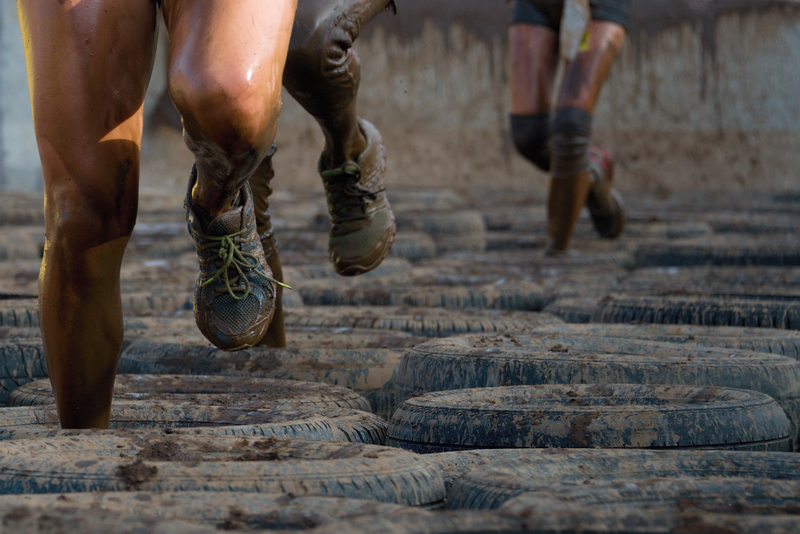Be the Change: Waste Prevention Tips for Eco-Friendly Living
Are you ready to embrace a lifestyle that minimizes waste and maximizes sustainability? Waste prevention is at the heart of eco-friendly living. By making thoughtful choices every day, you can significantly reduce your environmental footprint and inspire others to do the same. This article dives deep into practical strategies, innovative ideas, and actionable tips to help you prevent waste and champion sustainable living.
Understanding the Importance of Waste Prevention
Waste is more than just what we throw away--it's a reflection of the resources we consume and the impact we have on our planet. Waste prevention means stopping waste before it starts by rethinking our consumption habits. This approach is far more effective, and eco-friendly, than merely recycling or composting after waste is created.
The environmental toll of waste is enormous. Landfills emit greenhouse gases, pollute water sources, and contribute to habitat loss. By adopting proactive waste reduction strategies, we can protect natural resources, reduce pollution, and slow down climate change. Eco-conscious living starts with prevention!

How Does Waste Prevention Differ from Waste Management?
While waste management deals with how waste is handled after we create it--like recycling, composting, or incineration--waste prevention (also known as waste minimization) tackles the problem at the source. It's about rethinking, reducing, and reusing before anything becomes trash. By preventing waste, we eliminate the need for later processes, conserving energy and resources.
Top Waste Prevention Tips for Eco-Friendly Living
Ready to take action? Below, you'll find comprehensive, actionable, and easy-to-implement ideas that can help you be part of the solution. Let's dive in!
1. Embrace the "Zero Waste" Mindset
- Refuse, Reduce, Reuse, Recycle, Rot: Follow the five pillars of the zero waste movement. Refusing what you don't need is the most powerful step.
- Examine your daily habits and identify areas where you can cut back or eliminate waste entirely.
2. Choose Reusable over Disposable Items
- Invest in quality: Purchase durable products such as stainless steel water bottles, cloth shopping bags, glass containers, and bamboo utensils.
- Say goodbye to single-use plastics like straws, cutlery, and coffee cups whenever possible.
- Make a habit of carrying reusables with you, so you're always prepared.
3. Buy in Bulk and Mind Your Packaging
- Bulk purchases minimize packaging waste and can often save you money.
- Choose stores that allow you to bring your own containers for grains, spices, nuts, and more.
- Be mindful of packaging when shopping. Opt for minimal or compostable packaging, and avoid individually wrapped items.
4. Compost Organic Waste
- Turn kitchen scraps and yard waste into valuable compost for your garden instead of sending them to the landfill.
- Composting reduces methane emissions, returns nutrients to the soil, and cuts household waste in half.
5. Practice Conscious Consumption
- Adopt the mantra: Buy less, choose well, make it last.
- Prioritize quality over quantity--purchase items that are meant to last rather than those designed for disposability.
- Ask yourself before every purchase: Do I really need this?
6. Repair, Don't Replace
- Fix broken items--from clothing to electronics--before automatically buying new ones.
- Support local repair shops, or learn DIY repair skills to mend and maintain your belongings.
7. Opt for Sharing and Borrowing
- Participate in sharing communities: Use libraries, tool-sharing programs, and car-sharing services.
- Borrow or rent rarely-used items instead of buying.
- Host swap events with friends and neighbors for books, clothes, toys, and more.
8. Donate, Sell, or Gift Items
- Pass along gently-used goods to those who can utilize them, instead of discarding.
- List items online for sale or donation on platforms like Freecycle, Facebook Marketplace, or local charities.
9. Reduce Food Waste
- Plan meals, create shopping lists, and store food properly to avoid spoilage.
- Love your leftovers! Get creative with recipes to use up what you have.
- Understand expiration dates; "best by" is not the same as "bad after."
10. Make Sustainable Choices in the Kitchen
- Opt for reusable food wraps (like beeswax wraps) and cloth napkins instead of plastic wrap and paper towels.
- Choose bulk, local, and seasonal foods to minimize both waste and your carbon footprint.
Beyond the Home: Waste Prevention in Daily Life
Eco-friendly living extends beyond the home. Take these prevention tips into your workplace, school, or while traveling:
- At work: Print only when necessary, opt for digital solutions, and bring your own lunch in reusable containers.
- On-the-go: Travel with a reusable coffee cup, cutlery, and tote bag. Refuse flyers or promotional items you don't need.
- At school or events: Advocate for waste-free initiatives like no-packaging lunches, digital handouts, and refillable water stations.
How Technology Facilitates Waste Reduction
- Apps for sustainable living: Use apps to track consumption, access local bulk shops, or share resources in your community.
- Smart appliances help to optimize energy use and reduce food spoilage, further minimizing waste.
- Online platforms connect you to repair services, give-away groups, and zero-waste stores.
Waste Prevention and the Circular Economy
The transition to a circular economy is essential to a truly sustainable society. The circular economy prioritizes product longevity, reuse, and recycling to keep materials in use for as long as possible. Waste prevention is a key element, directly supporting this shift by curbing excessive resource extraction and landfill use.
Community Involvement and Local Initiatives
You don't have to do it alone! Community programs such as tool libraries, repair cafes, and zero waste markets empower individuals to take collective action. Getting involved can amplify your impact, provide support, and create a culture of eco-responsibility.
- Attend local workshops on upcycling, composting, or sustainable crafts.
- Organize clean-up drives to reduce litter and raise awareness.
- Advocate for policy change at local government level to support waste-reduction measures.
Myths and Misconceptions Around Waste Prevention
Myth: Waste prevention is inconvenient and expensive.
Reality: Many prevention techniques save you money and time, while becoming habitual and second nature after a short period.
Myth: My small actions don't matter.
Reality: Collective small efforts add up fast. Every bit of waste you prevent makes a difference.
Measuring Your Progress: Setting Goals for Waste-Free Living
- Track your trash for a week to identify problematic items.
- Set SMART goals (Specific, Measurable, Achievable, Relevant, Time-bound) to reduce and prevent waste.
- Celebrate milestones, whether it's a zero-waste grocery trip or a month without buying new clothes.

Resources for Learning and Inspiration
- Books: "Zero Waste Home" by Bea Johnson, "Waste-Free Kitchen Handbook" by Dana Gunders
- Websites and Blogs: Zero Waste Nerd, Going Zero Waste, The Story of Stuff
- Documentaries: "The True Cost," "Minimalism," "A Plastic Ocean"
Conclusion: Every Small Step Counts Toward a Greener Future
Adopting waste prevention in your daily life is a powerful way to effect positive change. It's not about perfection; it's about consistent, mindful choices that collectively create a significant impact.
Start small, stay curious, and inspire others through action. Sustainable, eco-friendly living is within reach--be the change you wish to see in the world!
Frequently Asked Questions About Waste Prevention
- What is the most effective waste prevention tip for beginners?
Begin with reusable bags and water bottles--these simple changes have a huge impact and are easy to incorporate into daily life. - Is composting necessary for low-waste living?
Composting isn't mandatory, but it's highly recommended as it diverts organic matter from landfills and enriches soil. - Does waste prevention mean giving up all conveniences?
No! It's about finding sustainable alternatives that fit your lifestyle, not about sacrificing comfort or convenience.
Now's the time to take the first step toward a zero waste, eco-friendly lifestyle. Start today--your planet will thank you!